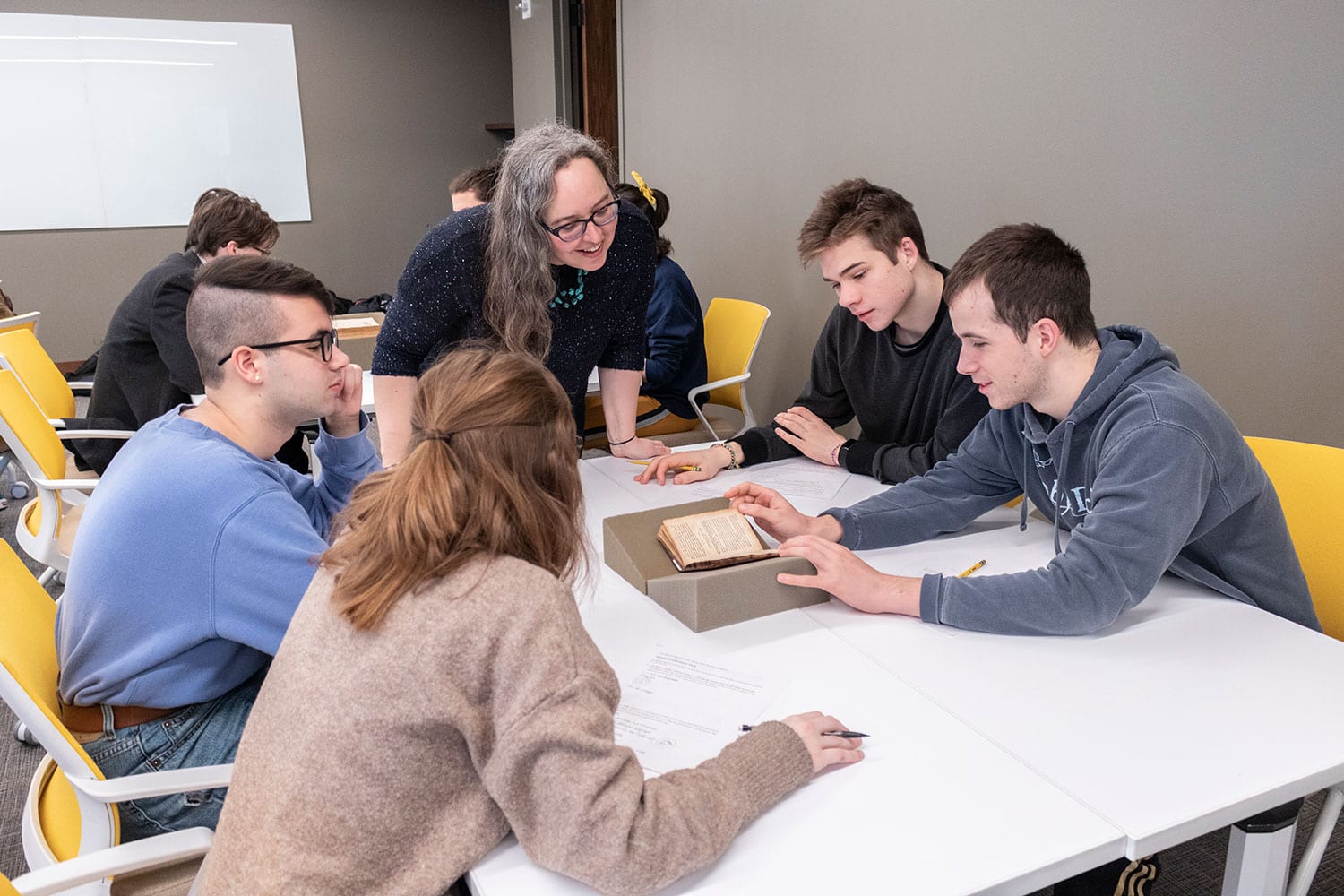Course Title: “The Supreme Court”
Taught By: Visiting Assistant Professor of Political Science Hannah Solomon-Strauss ’12
Says Solomon-Strauss:
This class is about the Supreme Court! We examine the Court from several perspectives over the semester: we’re reading historians, sociologists, political scientists, lawyers, and Supreme Court cases. Each class, we ask a “why” question— like, “Why did this case come out as it did?” We use this scholarship from across the social sciences to help us get at an answer.
Sometimes it seems like headlines about the Supreme Court are written with as much jargon as possible and with a double-negative thrown in, for good measure. A lot of commentary about the Supreme Court is almost-but-not-quite correct, and it can be hard to know what sources to trust for accurate, but comprehensible, analysis. But understanding the role and actions of the Court is important to understanding the U.S. government as a whole and to being an informed participant in society.
Alexander Hamilton called the Supreme Court “the least dangerous branch” of the federal government, because it controls neither the sword nor the purse. Alexander Bickel, a Yale law professor who, in 1962, wrote one of the most famous books about the Supreme Court said, for a “least dangerous” branch, the Supreme Court is “extraordinarily powerful.” Each class, we take a straw poll: which Alexander had it right? These are the frameworks that guide our critical thinking about the Court’s role in our federal system.
I learned a lot when I was a political science student here at Haverford. I hope to take everything I learned here, and combine it with my legal education—and what I’ve learned as a law clerk for federal judges and a lawyer for the federal government—to help my students make sense of this institution.
In Fall 2010, I was the teaching assistant for Professor Sidney Waldman’s “Introduction to American Politics” class. Professor Waldman devoted a lot of time to the Supreme Court in that class. At the time, I was already thinking I might go to law school, so although I didn’t previously know a lot of the material he assigned, I was excited for the challenge. My job was to supplement his lectures in my TA sessions, and so I had to first work out, for myself, the nuances of the readings and cases he assigned. This was my first effort at synthesizing complicated legal material for a non-legal audience, but I wasn’t a lawyer yet either! I remember the feeling of understanding the material, but wishing I was more fluent in the broader context so I could convey that, too.
I hope this class leaves students in a position to better understand the Supreme Court’s role in our system of politics and government; and to better comprehend the Court’s decisions and their effects on our lives.
Learn more about other courses offered by the Department of Political Science.

